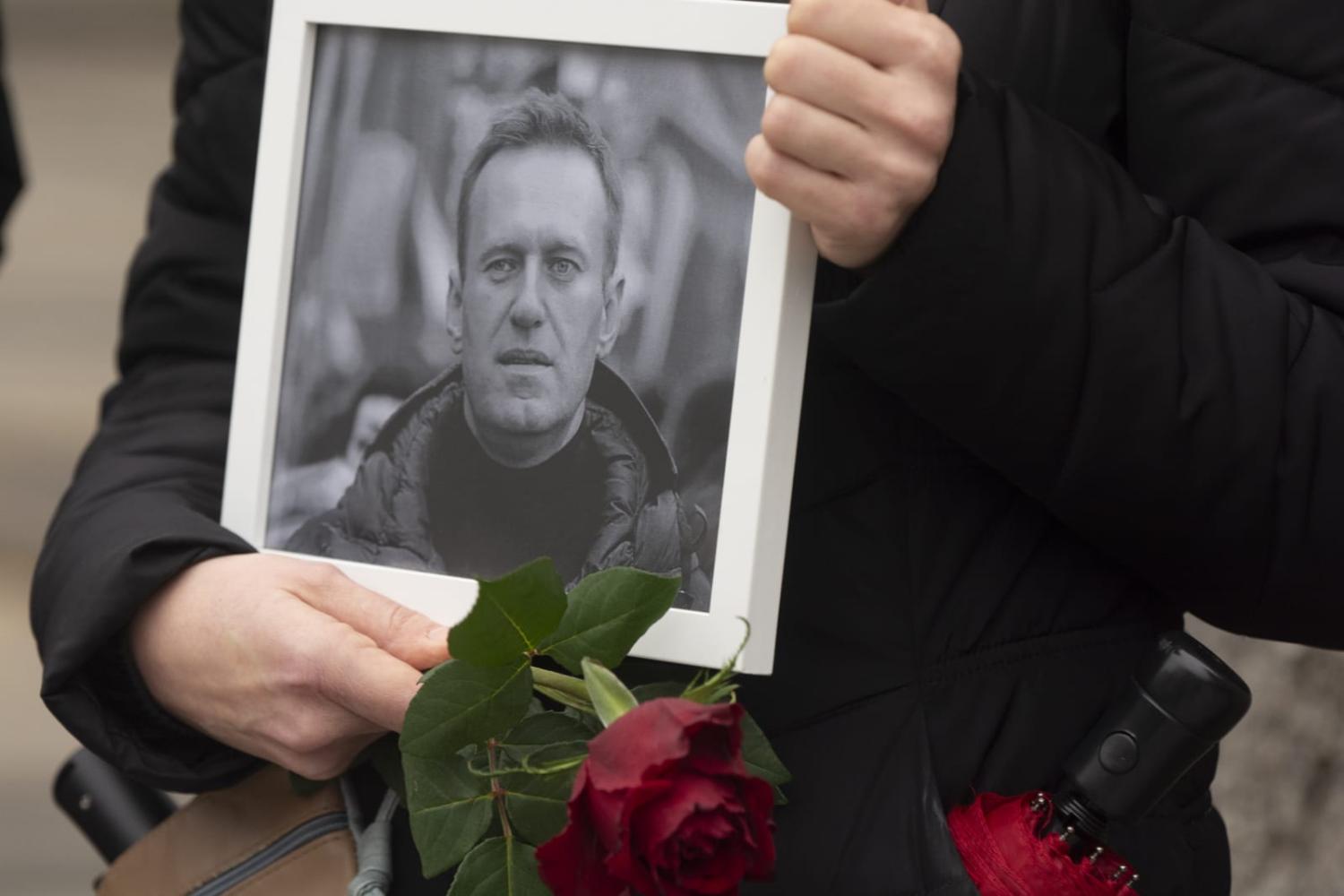The death of Alexei Navalny marks the snuffing out of Vladimir Putin’s last genuinely charismatic critic on Russian soil. As the man ultimately responsible for unlawfully imprisoning Navalny, and whose security services visited untold horrors upon him, the blame for his death rests squarely with Putin, Russia’s increasingly deranged tsar.
Navalny’s demise, in a far-flung Arctic circle prison camp, was certainly not unexpected. Nor was the manner of his death, which was reported as being from a “blood clot”: a regular Russian penal service euphemism for torture.
If there was anything surprising about Navalny’s death, it was that he survived as long as he did with a Kremlin target on his back. In 2017 he lost most of the vision in one eye after being burnt by a chemical thrown at his face. In 2020, as he prepared to return to Moscow from the Siberian city of Tomsk, he was dramatically poisoned with the military-grade chemical weapon Novichok – the same 4th generation nerve agent used in 2018 to target the Skripal family in the United Kingdom. And, following Navalny’s brave voluntary return to Russia, throughout his show trial and imprisonment in a series of ever-harsher and more remote Russian jails, few amongst even his most ardent supporters really believed Navalny would live to see freedom.
Stuck in prison, Navalny was no threat at all to Putin. But nor was he really a significant one before that. He was easily barred from participating in elections, the official state media shunned him as a heretic, and few were brave enough to publicly back his audacious criticisms of the Putin power elite. In any case, his “smart voting” strategy of encouraging citizens to endorse anyone other than a regime candidate was of little consequence in a state where democracy is phoney anyway.
The fact that the Kremlin decided to incarcerate Navalny, after trying to poison him, speaks volumes about the depth of paranoia permeating Putin’s inner circle. Indeed, Navalny was always far more skilful than Putin as a political communicator. He understood that many Russians, presented with a future offering no alternative but more of the same, were quietly seething at the hypocrisy of Putin’s Potemkin state, and at the corruption and violence that defined it.
Navalny’s version of Russian patriotism has been wrongly portrayed as either ultranationalism, a sure sign he was a CIA stooge, or both. Those making such claims are regularly found amongst Putin’s credulous cheerleaders, as well as those for whom there is no such thing as a good Russian. Yet Navalny turned away from flirting with the Russian right well over a decade ago. Instead, he championed a Russian state built on respect, law, self-determination and transparency.
In many respects Navalny was the antithesis of Yevgenyi Prigozhin, another recently-departed charismatic critic. Perversely, Prigozhin’s appeal among some Russians echoed the anti-Western rhetoric championed by his sponsor in the Kremlin: the loud and often uncouth defiance of self-appointed authority figures who believe they know best; the desire to cause chaos; and the veneration of the military as heroes of the state.

But whereas Prigozhin fascinated those already seduced by the darker coercive aspects of Russian political culture, Navalny instead foresaw a Russia where the end of one cruel tsar needn’t automatically lead to the ascension of a new one. That’s why Navalny’s TikTok and YouTube videos exposing the excesses of the Putin regime garnered such a significant following amongst Russians, and not just Westerners. In detailing palace after lavish palace, they presented a sharp, visual disconnect between the Russia they were lied to about by state media, and the Russia they experienced on a daily basis. It’s little wonder they became the samizdat of the Putin era.
But like Prigozhin, Navalny’s death also symbolised as much what he represented – opposition to Russia’s one-man state – as who he was. It is Putin’s familiar unspoken refrain: “although I will deny it, I am responsible. And although you know I am responsible, you will do nothing. Because you are weak.”
Many have already begun to debate whether Navalny’s death cements Putin’s power, or instead demonstrates his fragility. Putin would doubtless like us to believe it is the former. Yet although the demise of his one real remaining challenger might on the face of it look like strength, those who have watched the descent of Putin will also know that he now has literally nobody left to blame but himself – and those he has appointed – for the ills facing the Russian state.
That’s why we in the West should not be so vain as to believe Navalny’s death means we are the targets of Putin’s message. On the contrary, it is aimed squarely at Russia and its people.
But there may be a silver lining. As external observers, we tend to remember the outrages that leaders such as Putin commit against those around them. In his case, there are plenty to choose from: in Ukraine, in Syria, in Georgia, and many more. Ultimately, though, it is the crimes despots commit against their own people that eventually bring them undone.
If that is Navalny’s legacy, he will have done Russia – and the world – a great service.

